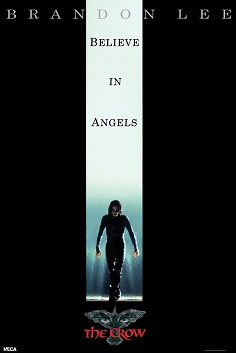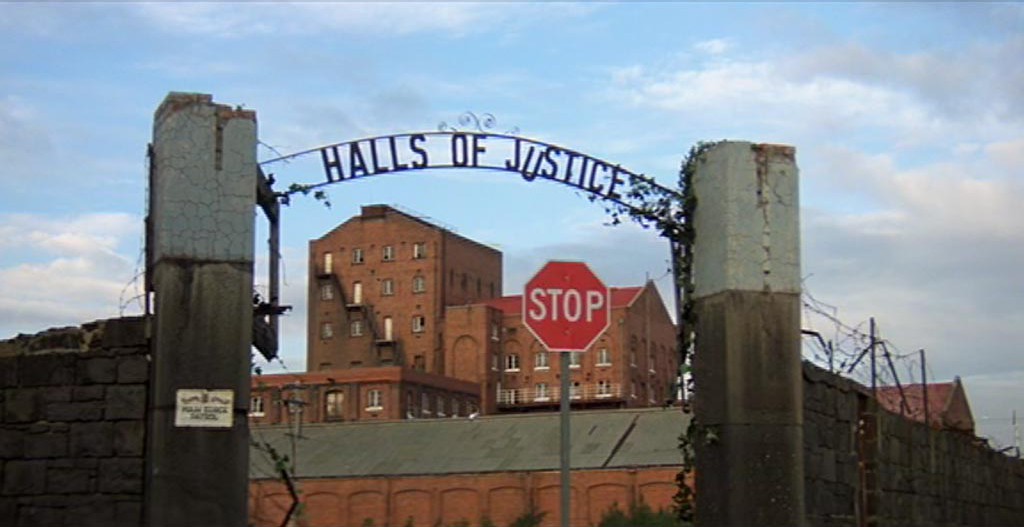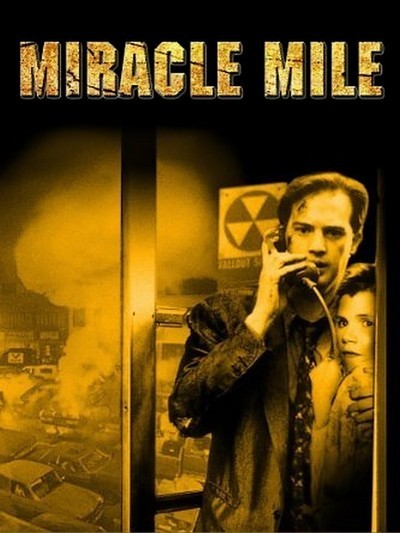 Last week (I meant to ramble about this earlier, but it’s been a somewhat hectic Thursday-evening-through-weekend), I was talking to a friend about movies, and she mentioned that she’d not only see The Wrath of Khan, she’d snuck out of school to see it when it opened in the theatres. Twice.
Last week (I meant to ramble about this earlier, but it’s been a somewhat hectic Thursday-evening-through-weekend), I was talking to a friend about movies, and she mentioned that she’d not only see The Wrath of Khan, she’d snuck out of school to see it when it opened in the theatres. Twice.
I never did that[1], but I was thinking about a movie that I went to see six times in the first month or so after it opened in the theatres[2], and that is The Crow. Murder, revenance[3], rain, fire, revenge, poetry quoted and lines spoken; I loved that movie so very much, and even writing about it now has some of the dialogue chiming around my head and I am smiling.
But I could never remember the ending. I mean, I remembered Sarah being kidnapped, I remembered the fight in the church, I remembered the scene with Shelley at the end. But I never remembered what Eric did to beat Top Dollar. It just went right out of my mind, which I suppose is nice in that it made the fight much tenser, since I wasn’t sure how he was possibly going to survive that.
And it’s odd, to forget that. Because it’s a deeply satisfying moment, in its way.
Same with The Shining–not the movie, this time, but the book. I remember the ending; you will remember what your father forgot, the boiler, the capering figure before the flames. But for the first few years I read it–during which I’m guessing I read it at least three times–I never remembered the scene where Jack smashed his own face with the roque mallet, and what looked out was the Overlook Motel.
In its own way, that’s as pivotal a scene to The Shining as Eric inflicting Shelley’s pain is to The Crow; the one is an extremely visceral representation of the effects of the haunted house, the other’s an encapsulation of revenge that is inarguably earned and was explicitly justified by the target not seven seconds earlier. They could have been written out, but it’s hard to imagine them being replaced by anything that would be better suited to the story.
So I’m honestly puzzled as to why I couldn’t remember them. I first read The Shining when I was eleven or twelve, and I guess it’s possible that I just had trouble grasping the concretization of such an abstract concept, but that makes no sense in the context of The Crow. I was older, and the concept there is a lot less abstract.
And of course, now I’m wondering if there are other things that I’ve forgotten the same way, blanked out after multiple readings or viewings. I suppose I couldn’t tell, which is rather annoying. (I’m guessing I’m not the only person who has these blank spots, but I’m also guessing that other people with these blank spots don’t necessarily share mine. Which makes em even more curious about what causes them, I think.)
—
[1] Off the top of my head, I am an extremely boring person, and the only school-related movie incident I can recall is when I got so many demerits for staying up reading after lights-out at boarding school that I was grounded and could not go see Bram Stoker’s Dracula the one day it was playing.
[2] The sixth time, my dad went with me and said I wasn’t old enough to see it again. It seems like it would be kind of a moot point by then, but moving on.
[3] This is now a word.


 I rewatched Miracle Mile tonight; last night, actually, by the time this post is done. (Spoilers follow.)
I rewatched Miracle Mile tonight; last night, actually, by the time this post is done. (Spoilers follow.) Last week (I meant to ramble about this earlier, but it’s been a somewhat hectic Thursday-evening-through-weekend), I was talking to
Last week (I meant to ramble about this earlier, but it’s been a somewhat hectic Thursday-evening-through-weekend), I was talking to